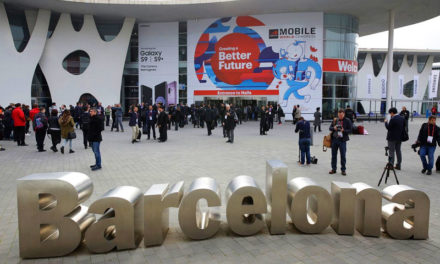The environment and public health are being severely harmed by rising volumes of e-waste, with no end in sight, as companies fail to take full responsibility to reduce their impact on the environment. With Econocom UK’s “as-a-service” OpEx-based solutions, organisations can regularly refresh their devices whilst being sustainable.
This blog will address the impact of as-a-service on purchasing patterns, and the importance of the circular economy in this context.
United Nations Sustainable Development Goals
In September 2015, the General Assembly of the United Nations adopted the 2030 Agenda for Sustainable Development that includes 17 Sustainable Development Goals (SDGs), including “Responsible Consumption and Production” which covers a further 11 sustainable goals.
Two points under section 12 state:
- 12.5 – “By 2030, substantially reduce waste generation through prevention, reduction, recycling and reuse.”
- 12.6 – Encourage companies, especially large and transnational companies, to adopt sustainable practices and to integrate sustainability information into their reporting cycle
These two points highlight the need to manage the full lifecycle of any devices which can impact the environment. Whether regularly updating your technology or utilising a device for long periods they need to be refreshed in an environmentally friendly way.
The Ellen Macarthur Foundation describes the circular economy as “electronic products that are kept in use for as long as possible, then professionally remanufactured for reuse, refurbishment, or repair.”
What are the benefits of a circular economy for businesses?

Intends to achieve zero waste
The circular economy is based on the reuse of resources and products, which contributes to a zero-waste model. This is important for everyone.
Zero waste requires less plastic and pollution in our seas and fewer landfills. It also indicates that there is less need for scarce resources to be extracted; instead, we recycle them.
While many sustainability models push for waste reduction to achieve zero waste, the circular economy model promotes growth. This makes it an ideal target for businesses, individuals, and governments alike, all while fulfilling vital environmental objectives.
Improves brand reputation
Circular economy solutions strengthen brand reputations. People are becoming increasingly vocal in their criticisms of companies that engage in (or remain silent about) deforestation, pollution, or the use of non-sustainable resources. On social media, brands that offer low-quality items, employ non-recyclable packaging, or enable ecological harm are being held accountable.
By ensuring that the brand mission aligns with their employees’ beliefs, circular economy initiatives may help businesses attract and retain talent.
Why do as-a-service solutions help the environment?

We are accustomed to paying a subscription for certain products and technology as consumers. Consider your phone contract, your vehicle, or your streaming entertainment membership. As more technological services migrate to the cloud, this is a popular and increasing trend.
In the corporate world, IT investment has generally been a one-time upfront cost accompanied by a 3–5-year duration of use and then little thought given to the ageing devices when they’re surplus to requirement… normally with old technology residing in an IT cupboard.
The “as-a-service” solution allows companies to empower their workforce with the latest technology every three years, with the knowledge that their new model is environmentally friendly and the old devices are reused and placed into the circular economy, whether complete or in parts.
New Devices are Sustainable
Many manufacturers such as Dell, Apple, HP, and Lenovo are concentrating on their products having a net zero carbon impact, with the latest technology made from recycled materials and packaging consisting of various other biodegradable and recyclable materials, such as mushrooms.
- Dell has utilised over 27 million pounds of sustainable materials in their products.1
- Dell’s products feature up to 85% post-consumer recycled plastic.
- Apple has reduced their single-plastic usage by 75% since 2015.
How as-a-service works
Businesses are becoming increasingly interested in participating in the circular economy. Therefore, they may opt for Econocom’s as-a-service or subscription models rather than standard ownership.
Such models allow companies to finance circular economy efforts without incurring huge initial costs. It includes not just sustainability solutions, but it may also assist to balance investment by reducing expenditure while satisfying the company’s goals.
This eliminates the need for the company to redirect money from other services to remain productive and adaptable. In addition, when the as-a-service contract ends, the equipment will be retrieved, recycled, and wiped as part of the service, thereby completing the process, and providing value. Favouring access above ownership is crucial for adopting a circular economy mentality.
1 Includes only recycled and renewable materials used in new Dell Technologies-branded products














